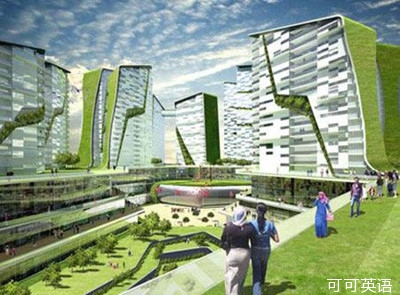Some questions to ponder on Earth Day: how much of an environmental problem is the growing human population? And is the problem too many people or the throwaway culture of too many things?
在世界地球日,有些问题值得深思:人口爆炸到底带来了多大的环境问题?问题是人口过多,还是一次性文化导致的过度消费?

A new paper in the journal Science attempts to assess the burdens placed on people and the planet by individuals' decisions to have large families and/or consume a lot.
《科学》期刊上的一篇论文试图评估个人关于大家庭或者过度消费的决定给人类和地球带来的负担。
A key factor in the creation of large families is young women without access to schools or family planning. So one way to address population growth is to educate and empower women.
产生大家庭的关键因素在于年轻妇女没有入学的机会或者计划生育的自主权。因此解决人口增长的一个途径就是让妇女接受教育或者赋予她们权利。
Good news. That's happening. In fact, the rate of population growth peaked back in the 1960s and has been falling ever since.
这些正在取得进展,确实是好消息。事实上,人口增长率在上世纪60年代达到高峰,从此一直在下滑。
What about consumption? Our global economy's toll in pollution and degradation of the environment remains high, though its focus has shifted around the globe. For example, the current uptick in Brazilian deforestation can be traced largely to exports of beef and soybeans to China.
那么如何解决消费问题呢?能引起环境污染和环境退化的全球经济活动总量居高不下,尽管它的重点已经转向了世界各地。例如,目前巴西砍伐森林略有上扬,很大程度上归因于向中国出口牛肉和大豆。
The conclusion of the Science paper: "contemporary economic growth is unsustainable." And true sustainability has to be long-term: it means ensuring that whatever decisions we make now do not lessen the ability of future generations to have at least as good a life as we enjoy today. We can't buy our way out of the problem.
这篇科学论文总结道:“当代经济增长是不可持续的。”且真正的可持续发展必须是长期的:这意味着要确保我们现在所做的任何选择不会损害后代享受同等质量的生活的能力。我们即使花钱也无法解决这个问题。













